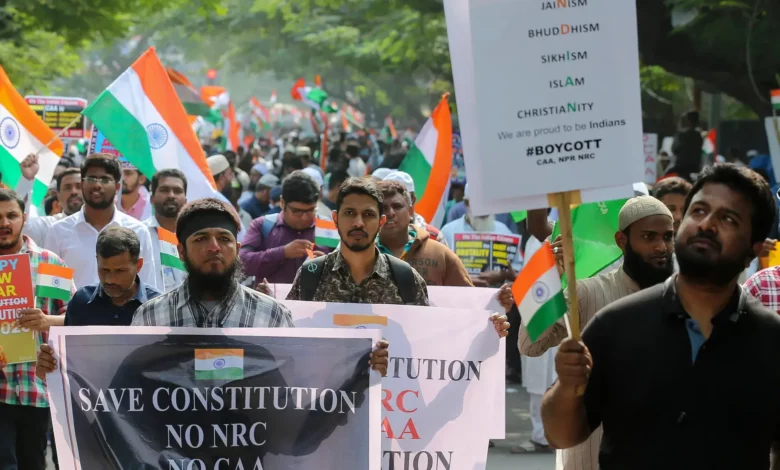
Americans are concerned about India’s implementation of the Citizenship Act. Tensions have mounted over India’s controversial Citizenship Amendment Act (CAA) as the government has outlined rules for implementing the law, prompting U.S. problems to arise.
CAA has opened the way for citizenship rights to undocumented non-Muslim migrants from Pakistan, Bangladesh, and Afghanistan who arrived in India before December 31, 2014. When the U.S. Addressed the controversial issue in a daily briefing, State Department spokesman Matthew Miller said,
“We are concerned about the announcement of the Citizenship (Amendment) Act on March. We’re looking at the best implementation of the law. Respect for religious freedom.” and all communities.”
For equality of persons under the law is a fundamental principle of democracy.” Four years after the bill was passed by Parliament in 2019, the decision of the BJP-led central government to enact the CAA on Monday has once again triggered sharp criticism from Opposition leaders.
The notified law has been condemned as “unconstitutional,” “discriminatory,” and violating secular principles enshrined in the Constitution of India. Critics say that by exempting Muslims from the law and linking citizenship to religious identity, CAA undermines the country’s secular foundations.
However, the government has said that the law applies only to issuing citizenship, and no existing Indian citizen will lose citizenship. Amid growing controversy, Union Home Minister Amit Shah remained defiant and insisted in an interview with ANI,
“This is our sovereign right to ensure citizenship of Indians in our country, we will not relent.” never will and the CAA never will.”



